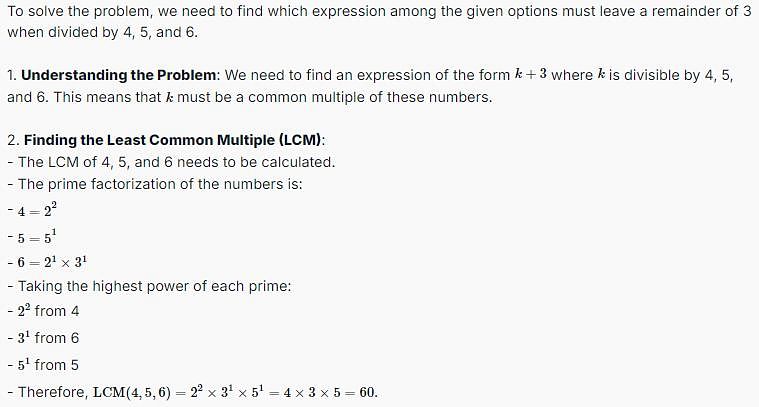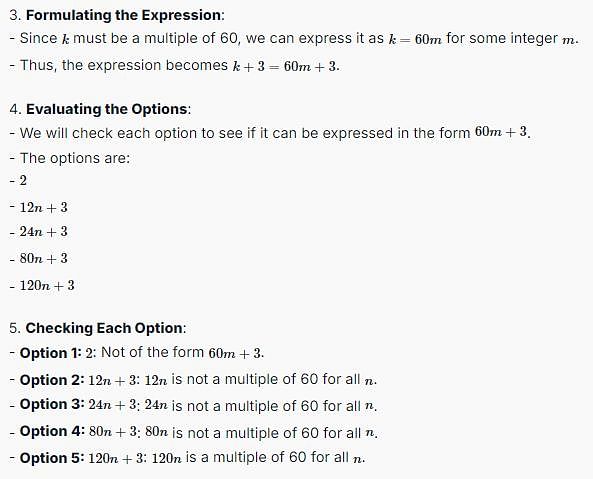Test: Remainders- 2 - GMAT MCQ
15 Questions MCQ Test Quantitative for GMAT - Test: Remainders- 2
What is the remainder when the positive integer n is divided by 3?
1) The remainder when n is divided by 2 is 1.?
2) The remainder when n + 1 is divided by 3 is 2.
The remainder when the positive integer m is divided by n is r. What is the remainder when 2m is divided by 2n?
| 1 Crore+ students have signed up on EduRev. Have you? Download the App |
The remainder when the positive integer m is divided by 7 is x. The remainder when m is divided by 14 is x + 7. Which one of the following could m equal?
If n is a positive integer, which one of the following numbers must have a remainder of 3 when divided by any of the numbers 4, 5, and 6?
When m is divided by n, the remainder is 14. If m/n = 65.4 , what is the value of n?
If positive integer x is divided by 2, the remainder is 1. What is the remainder when x is divided by 4?
1) 31 < x < 35 ?
2) x is a multiple of 3 ?
How many two-digit whole numbers yield a remainder of 1 when divided by 10 and also yield a remainder of 1 when divided by 6?
What is the remainder when 33 is divided by the integer y?
1) 90 < y < 100 ?
2) y is a prime number ?
For positive integers a and b, a/b = 0.6 . Which of the following CANNOT be the value of a?
If K is a positive integer less than 10 and N = 4,321 + K, what is the value of K?
1) N is divisible by 3 ?
2) N is divisible by 7 ?
For positive integers m and n, when m is divided by n the remainder is 4. Which of the following CANNOT be the value of n?
Two numbers when divided by a divisor leave a remainder of 248 and 372 respectively. The remainder obtained when the sum of the numbers is divided by same divisor is 68. What is the divisor?
If w, x, y, and z are the digits of the four-digit number N, a positive integer, what is the remainder when N is divided by 9?
1) w + x + y + z = 13
2) N + 5 is divisible by 9
If N = 1000x + 100y + 10z, where x, y, and z are different positive integers less than 4, the remainder when N is divided by 9 is
|
115 videos|106 docs|113 tests
|
|
115 videos|106 docs|113 tests
|




















